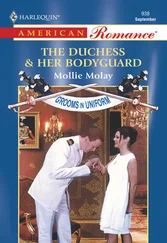Hugh Walpole - The Duchess of Wrexe, Her Decline and Death
Здесь есть возможность читать онлайн «Hugh Walpole - The Duchess of Wrexe, Her Decline and Death» — ознакомительный отрывок электронной книги совершенно бесплатно, а после прочтения отрывка купить полную версию. В некоторых случаях можно слушать аудио, скачать через торрент в формате fb2 и присутствует краткое содержание. Жанр: foreign_prose, История, foreign_edu, foreign_antique, на английском языке. Описание произведения, (предисловие) а так же отзывы посетителей доступны на портале библиотеки ЛибКат.
- Название:The Duchess of Wrexe, Her Decline and Death
- Автор:
- Жанр:
- Год:неизвестен
- ISBN:нет данных
- Рейтинг книги:5 / 5. Голосов: 1
-
Избранное:Добавить в избранное
- Отзывы:
-
Ваша оценка:
- 100
- 1
- 2
- 3
- 4
- 5
The Duchess of Wrexe, Her Decline and Death: краткое содержание, описание и аннотация
Предлагаем к чтению аннотацию, описание, краткое содержание или предисловие (зависит от того, что написал сам автор книги «The Duchess of Wrexe, Her Decline and Death»). Если вы не нашли необходимую информацию о книге — напишите в комментариях, мы постараемся отыскать её.
The Duchess of Wrexe, Her Decline and Death — читать онлайн ознакомительный отрывок
Ниже представлен текст книги, разбитый по страницам. Система сохранения места последней прочитанной страницы, позволяет с удобством читать онлайн бесплатно книгу «The Duchess of Wrexe, Her Decline and Death», без необходимости каждый раз заново искать на чём Вы остановились. Поставьте закладку, и сможете в любой момент перейти на страницу, на которой закончили чтение.
Интервал:
Закладка:
"And this square?" she said. "What's this square?"
"A pool. All the houses hang over it as though they were hiding it. It's restful like a pool. There's no noise–"
The statue of the nymph had disappeared. The trees were a black splash against the lamp-lit walls. Lights were in the windows.
He seemed suddenly conscious that it was late. When he had gone Lizzie stood, for some time, looking into the square and thinking how right he had been.
All that evening Daisy was out of temper.
CHAPTER V
SHE COMES OUT
I
Downstairs the dinner-party was at its height. Mrs. Newton, the housekeeper, went softly down the passages to give one last glimpse at the ballroom. There it lay, like a great golden shell, empty, expectant. The walls were white, the ceilings gold; on the white walls hung the Lelys, the Van Dycks, and at the farther end of the room Sargent's portrait of Her Grace, brought up, for this especial occasion, from the Long Drawing-room. There was the gleaming, shining floor, there the golden chairs with their backs against the wall, and there before each picture a little globe of golden flame ministering to its beauties, throwing the proud pale faces of the old Beaminsters into scornful relief, and none of them so scornful as that Duchess in the far distance, frowning from her golden frame.
Mrs. Newton was plump and important. She worshipped the Beaminster family, and it yielded her now intense satisfaction to see these rooms, that were used so seldom, given to their proper glory and ceremony. For a moment as she stood there and felt the fine reflection of all that light upon the shining floor, absorbed the silence and the space and the colour, she was uplifted with pride, and thanked her God that she was not as other women were, but had been permitted by Him to assist in no small measure in the glories and splendours of this great family.
Then, with a little sigh of satisfied approval, she softly walked away again.
II
Two hours later Rachel Beaminster, standing a little behind her aunt, saw the people pressing up the stairs. To those who watched her, she seemed perfectly composed, her flushed cheeks, her white dress, her dark hair and eyes gave her distinction against the colour and movement of the room.
Her eyes were a little stern, and her body was held proudly, but her hands moved with sharp spasmodic movements against her dress.
As she stood there men were brought up to her in constant succession and introduced. They wrote their names on her programme, bowed and went away. She smiled at each one of them. Before dinner she had been introduced to the Prince—German, fat and cheerful—and the second dance of the evening was to be with him. Some of the men who had been dining in the house she already knew—Lord Crewner, Roddy Seddon, Lord Massiter, and others—and once or twice now the faces that were led up to her were familiar to her.
The great ballroom seemed to be already filled with people, and still they came pressing up the stairs.
Rachel was miserably unhappy. For one moment before she had left her room, where her maid had stood admiringly beside her, when she herself had seen the reflection of the white dress and the dark hair and the flushed cheeks in the long mirror, for one great moment she had been filled with exaltation. This ball, this agitation, this excitement was all for her. The world was at her feet. The locked doors were at last rolling open before her and all life was to be revealed.
Pearls that Uncle John had given her were her only ornament. They laughed at her from the mirror, laughed and promised her success, conquest, glory. Life at that instant was very precious.
But, alas! the dinner had been a terrible failure. She had sat between Lord Crewner and Lord Massiter, and had no word to say to either of them. Lord Massiter was middle-aged and hearty and kind, and he had done his best for her, but she had been paralysed. They had talked to her about the opera, the theatres, hunting, books, Munich; she had had a great deal to say about all these things, and she had said nothing. Always within her there seemed to be rivalry between the Beaminster way of saying things and the other way. When Lord Crewner said to her, "What I like in music is a real cheerful little piece that one can go to after dinner, you know," there were a whole number of Beaminster observations to make. But as soon as they rose to her mouth something within her whispered, "You know that you don't mean that. That's at second hand. Give him your opinion." And then that seemed presumption, so she said nothing.
It was all wretched and quite endless. Uncle John sent her encouraging smiles every now and again, but she felt that he must be disappointed at her failure. The food choked her. The tears filled her eyes and it was her pride only that saved her. Through it all she felt that her grandmother upstairs in her bedroom was planning this.
Afterwards the Princess, seeing perhaps that she was unhappy, was kind and motherly to her, and told her funny stories about her childhood in Berlin. But all the time Rachel was saying to herself, "You're a fool. You're a fool. You've got no self-control at all."
She had been dreading the introductions to so many young men, but she found that that was easy enough. They were not young men; they were simply numbers on her programme and they vanished as soon as they came.
Then the band in the distance began to play an extra, whilst the young men wandered about and discovered their friends, and the sound of the music cheered her. It amused her now to watch the people as they mounted the stairs. She noticed that all the faces were grave and preoccupied until a moment before the arrival at Aunt Adela, and then a smile was tightly fastened on, held for a moment, and then dropped to give way to the preoccupation again.
The room was so full now that it seemed that it would be quite impossible for any dancing to take place. Uncle John was working very hard at introducing people to one another, and as she saw his good-natured face and his white hair her heart went out to him. If everyone were as kind as Uncle John how nice the world would be! Meanwhile her eyes anxiously watched the stairs, and as every woman turned the corner at the bottom the question was—"Was this May Eversley?"
There had been a battle about May. Aunt Adela did not like her, disapproved of her, would not hear of inviting her. Very well, then, Rachel would not come to the ball at all. They could give the ball for somebody else. If May were not asked Rachel would not come.
So Lady Eversley and May had both been asked, and of course they had accepted.
Rachel waited and gazed and was continually disappointed. The extra was over and soon the first dance would begin; with the second dance would arrive the Prince and Rachel would have no talk with May at all. It was too bad of May to be late. She had promised so faithfully—Ah! there she was with her air of one confidently conducting a most difficult campaign. She mounted the stairs like a general, gave Lady Adela the tiniest of smiles, and was at Rachel's side.
That clasp of May's hand filled Rachel's body with confident happiness. May's hardy self-control, her discipline derived from some stern old Puritans, dim centuries away, was all waiting there at Rachel's service.
"How late you are!"
"Mother was such a time. And then we couldn't get a cab. How are you, Rachel?"
"Dinner was terrible—all wrong. I hadn't a word to say to anyone. I'm better now that you've come."
"Is the Prince here?"
"Yes. I'm dancing the next dance with him. The Princess was very kind after dinner. Oh! May, dinner was a disaster, an absolute disaster!"
"Not nearly so bad as you thought, you may be sure. Things always seem so much worse."
Читать дальшеИнтервал:
Закладка:
Похожие книги на «The Duchess of Wrexe, Her Decline and Death»
Представляем Вашему вниманию похожие книги на «The Duchess of Wrexe, Her Decline and Death» списком для выбора. Мы отобрали схожую по названию и смыслу литературу в надежде предоставить читателям больше вариантов отыскать новые, интересные, ещё непрочитанные произведения.
Обсуждение, отзывы о книге «The Duchess of Wrexe, Her Decline and Death» и просто собственные мнения читателей. Оставьте ваши комментарии, напишите, что Вы думаете о произведении, его смысле или главных героях. Укажите что конкретно понравилось, а что нет, и почему Вы так считаете.












